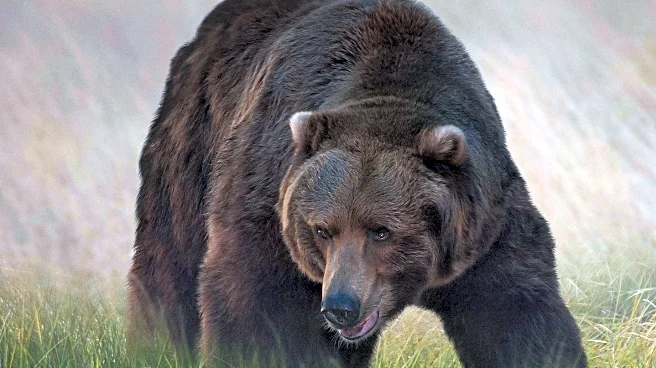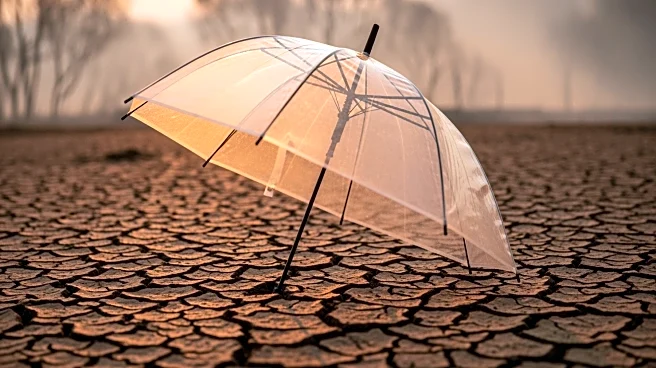What is the story about?
What's Happening?
Fat Bear Week has commenced in Alaska, allowing the public to vote online for the largest brown bear on the Alaska Peninsula. The contest, which started in 2014, highlights the resilience of these bears as they prepare for winter by consuming large quantities of salmon. This year, 11 adult bears and one cub, named '128 Junior,' are competing. The event is held at Katmai National Park and Preserve, where bears are observed via livestream cameras. The competition follows a bracket-style format, with the winner announced on September 30. The bears must frequent the Brooks Camp area to be eligible, and the contest includes various unique bear personalities.
Why It's Important?
Fat Bear Week serves as an educational tool, showcasing the ecological importance of brown bears and their role in the ecosystem. It draws attention to the conservation efforts at Katmai National Park and Preserve, emphasizing the significance of salmon runs for bear survival. The event also engages the public in wildlife conservation, fostering awareness and appreciation for natural habitats. The contest highlights the challenges bears face, such as aging and injuries, and the adaptability required for survival. This engagement can lead to increased support for conservation initiatives and awareness of environmental issues.
What's Next?
The competition will continue with online voting until September 30, when the winner will be announced. As the event progresses, it may attract more public interest and participation, potentially influencing future conservation efforts. The outcome could also impact how similar wildlife events are organized, promoting interactive and educational experiences. Stakeholders, including conservationists and park officials, may use the event's popularity to advocate for further protection of natural habitats and wildlife.
Beyond the Headlines
Fat Bear Week not only entertains but also raises awareness about the ecological dynamics of the region. It underscores the importance of salmon runs, which are crucial for the bears' survival and the broader ecosystem. The event may inspire discussions on wildlife management and the impact of climate change on natural food sources. Additionally, it highlights the cultural significance of wildlife in Alaska, potentially influencing tourism and local economies.


















